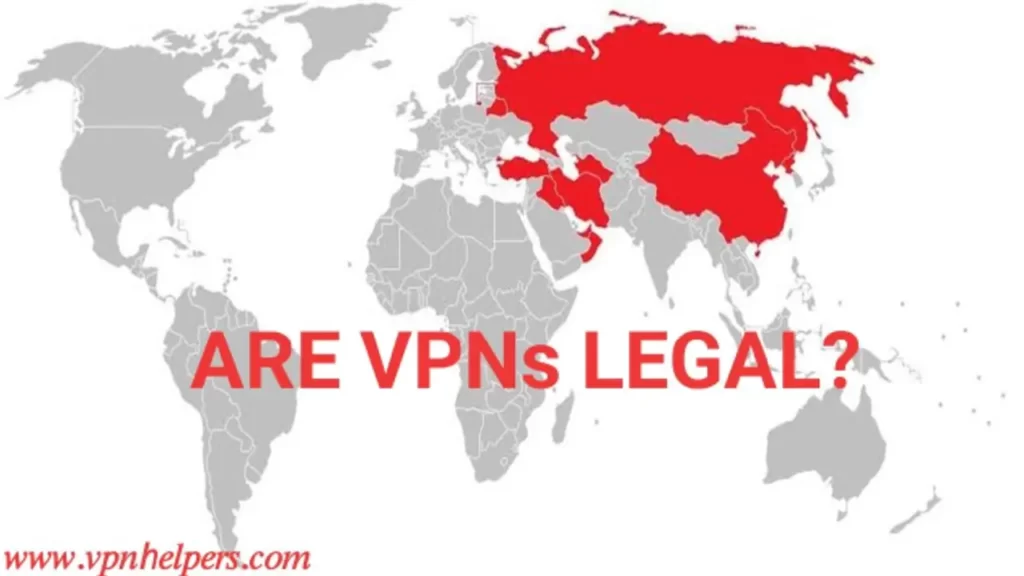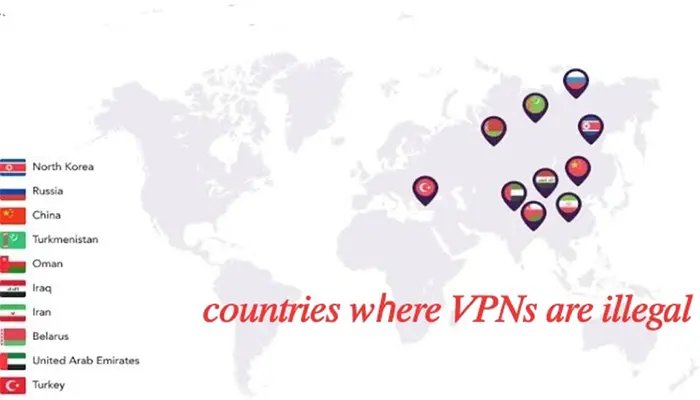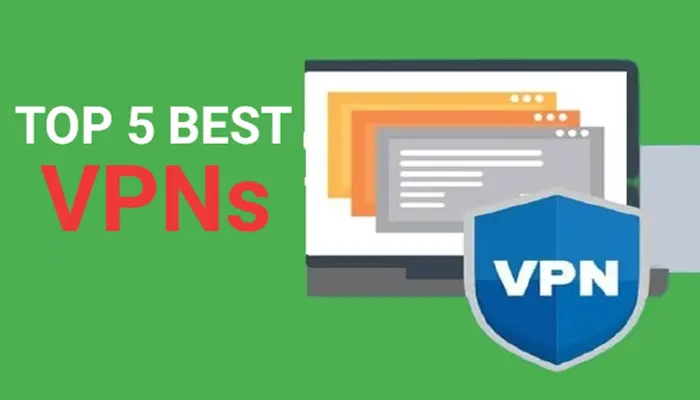
A VPN, or Virtual Private Network, is a virtual tunnel that connects two networks and provides a secure connection. It can be used for security, privacy, and even to access region-restricted content.
But VPNs are legal or not? This question is on the mind of many people. So today I’ll clear this doubt through this article. So continue reading !!
VPNs are not as easy as they seem. They can be time-consuming to set up and maintain. Not all VPNs are created equal either; some may not provide the level of encryption you need or want.
You may also find that your internet connection speed slows down with a VPN enabled and that you’re limited in the number of devices you can connect to at once.
Here is everything you need to know about using a VPN including when it’s best to avoid them! So let’s begin without delay.
Are VPNs legal to use?
Use of VPNs is legal in the US and many countries, but can be linked to illegal online activity. We explain what is legal and illegal to use a VPN and your rights to use a VPN around the world.
The good news is that most VPNs are legal.
Are VPNs Legal Anywhere? No. VPNs are completely legal in the United States and in most western democracies like Europe.
However, this does not mean that you can freely engage in illegal activities with an enabled VPN – you are still doing illegal activities.
While VPNs are legal in the United States, VPN use is monitored or even banned in fewer democracies, including China, Russia, North Korea, and Cuba.
Virtual Private Networks encrypt your internet connection and prevent you from being tracked or hacked online. VPNs are highly valued by those looking to hide less-than-interesting activity, including illegal downloads and use of dark networks. We have written the list of best VPNs below, take a look at it.
Is using a VPN illegal?
VPNs are completely legal to use in most countries, including the United States, but not in all countries. Using a VPN for illegal activities also remains illegal and you may still be caught and prosecuted.
A VPN protects your privacy, but does not protect you from penalties for theft, illegal shopping, or any other crime determined by your country of residence.
Here’s the bottom:
1/- You Can Use a VPN in the US – Running a VPN in the US is legal, but anything illegal without a VPN will still be illegal if you use one (e.g. torrenting copyrighted material).
2/- VPN Banned by Some Countries – Some countries, including China, Russia, Iraq, and North Korea, restrict or prohibit the use of VPN.
3/- Using a VPN May Violate Terms of Use – Using a VPN to access services like Netflix does not violate their Terms of Use.
4/- Law Enforcement Agencies May Need Information- While most VPNs promise not to keep logs, there is precedent for VPN providers to provide user information to authorities on request.
Where Is It Illegal to Use a VPN?

Countries with a reputation for being stricter on civil rights and freedom of expression are usually those that prohibit or restrict the use of VPNs.
Citizens can try to use a VPN, for example, to bypass strict government monitoring of online activity or block certain websites or services. For their part, the government tries to block or limit its use.
VPNs are illegal to use in Iraq, Belarus, and North Korea, and their use is severely restricted in a number of other regions, including China, Russia, Turkey, and the United Arab Emirates.
VPNs and Illegal Activities
While using a VPN itself is rarely illegal, some online activities are still illegal regardless of whether or not you use a VPN. This can include:
1. illegal file sharing
Also known as torrenting, users can simultaneously download and upload copyrighted content (such as music, movies, and games) over the Internet.
2. Hacking
It is illegal to gain unauthorized access to the computers or networks of other companies or individuals, whether to disrupt business operations, commit fraud, or steal data.
3. Buy, sell or download on the dark network
The Dark Network is an inaccessible area of the Internet where many illegal activities take place, such as buying or selling drugs, weapons, and other illegal materials, or gaining access to illegal pornography.
4. Cyber Harassment
It is illegal to track someone online and cover your tracks with a VPN.
When should you avoid using VPNs?
A VPN is a basic tool, but should it always be on? In general, we recommend that you keep it as long as possible.
However, there are certain scenarios that you may need to consider disabling your VPN. In these cases, we recommend pausing your VPN instead of turning it off. Finding a VPN with a pause option is a good solution.
One possible reason for pausing your VPN is internet speed. While it can increase game speed because your ISP isn’t causing lags, sometimes using a VPN can also slow down your connection.
Another reason is that sometimes the content you want to open is only available in your physical location and a VPN will become a problem.
Top 5 Best VPNs available in 2024

1. NordVPN: Best Choice
NordVPN is one of the premium VPN in the industry with a completely verified background, based in Panama, and the best choice to protect your privacy. Military-grade encryption with no DNS/IPv6 leaks protecting you from your ISP or any government surveillance.
NordLynx will double your streaming speeds. You can simultaneously use NordVPN on 6 device connections per subscription. They are offering 30 days of the money-back guarantee program. So, if you don’t like the app then you will get your full refund within 5 days.
2. ExpressVPN: Recommended
ExpressVPN supports best-in-class VPN protocols like OpenVPN and L2Tp-IPSec. This VPN is based in the UK and has no data retention laws. The company also offers 24/7 live chat support for all of your problems.
It also has a no-log policy and is available to all of its customers. The service is available in the U.S. and is free to all users. It is also available in Canada and the UK, with prices starting at $20 ($30)
3. Surfshark: Universal VPN
Surfshark is a very easy-to-use No Log VPN with a comprehensive interface and is well suited for new users. While everything runs on RAM servers there is no logging. Its vast server network can unblock any trading platform for you and the best part is that you can pay in crypto (BTC, ETH, etc) while taking a subscription.
While there are no independent audits run by this VPN, they offer a 45 days risk-free money-back guarantee program. There are no IP or DNS leaks found, you can check out on full review.
4. IPVanish: Unlimited Connections (No log)
You can enjoy unblocking streaming services and grab crazy deals by spoofing your location with 1500+ servers in more than 75 locations across the world (Dynamic IPs) IPVanish works well in real-time with decent internet speeds.
They have also included leak protection along with standard 256-bit encryption and OpenVPN protocol. They offer a 30 days risk-free money-back program and 24/7 live chat support for all of your problems. If you want then there is a hidden page for low price subscriptions.
5. Hotspot Shield: Simple & Effective
Hotspot Shield packs military-grade security with a user-friendly interface for beginners. One among unique VPNs for Android having Catapult Hydra to improve streaming speeds.
This VPN has managed to deliver 400Mbps without any 5G. It is compatible with Android, iOS, Amazon Fire, Apple TV, Chromecast and Chromecast. The speed will be decent enough to stream content.
They are providing a 45 days money-back guarantee program so you can definitely know what makes this one special among all the VPNs.
Conclusion
So here we explained complete information about VPNs and when you should avoid using them. Hope you enjoyed this article. But remember one thing, always use a trustworthy VPN while browsing and streaming. If you have any questions about VPNs, let me know in the comments section below!!
FAQs
Can you get caught pirating with a VPN?
Yes, VPNs make it a lot harder to identify, but it’s not impossible. This is especially true if you are using a free VPN that is frequently compromised and profiting from the sale of valuable user data.
Is it illegal to use VPN for Netflix?
No, accessing Netflix via a VPN is not illegal, as long as, of course, you live in a country where VPNs are legal. However, Netflix may refuse and potentially terminate your account if you do something that you deem to be exempt from the Terms of Service.
Can VPN really hide your IP address?
Yes, A VPN routes your traffic through secure servers, which means that when you use a VPN, the websites you visit won’t see your IP address and therefore won’t be able to identify you.
Can my Internet provider see my VPN?
May be possible. Your ISP may see that you have access to a secure server, but from now on the path will be cold and you have no idea what you are using it for and what will happen once the connection visits that secure server.